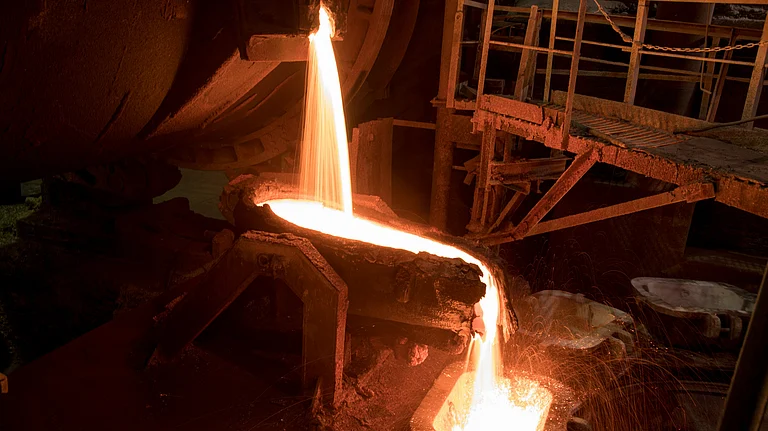Tesla has localized its in-car voice assistant for China, routing data through domestic AI models due to regulatory and data-localization rules
ByteDance’s Doubao handles structured voice commands (navigation, media, climate, etc.) with low latency and reliability
DeepSeek Chat powers richer conversational AI, multi-turn queries, and reasoning tasks
Both models run on ByteDance’s Volcano Engine cloud, keeping processing within Chinese infrastructure
Tesla Rolls out China-Only In-Car AI, Integrates DeepSeek & ByteDance’s Doubao for Conversational Features
Tesla has localized its in-car AI assistant in China, routing commands through ByteDance’s Doubao and conversations via DeepSeek Chat, both hosted on Volcano Engine. The move reflects regulatory pressure, data-localization rules, and demand for smoother integration with local services
Tesla has moved to localise its in-car voice assistant for Chinese customers by routing voice commands and conversational AI through domestic models, Bloomberg reported citing terms of service document posted on the company’s China website.
Under the arrangement, ByteDance’s Doubao model will handle the bulk of routine voice commands (navigation, media, climate control and similar tasks), while DeepSeek (DeepSeek Chat) will power more advanced conversational interactions, with both services hosted on ByteDance’s Volcano Engine cloud.
As per the report, the change marks a notable shift in Tesla’s software strategy in its biggest non-US market and underscores how regulatory, commercial and technical pressures are shaping automakers’ AI choices in China.
Function Details
Two China-hosted models are being used: Doubao for command processing and DeepSeek Chat for conversational and AI interactions. Both models run on ByteDance’s Volcano Engine cloud.
The functionality includes voice control for navigation, in-car entertainment, cabin temperature, and news updates, with more natural dialogue handled by DeepSeek. The source of this information is a terms of service document uploaded to Tesla’s China site and the latest over-the-air (OTA) update listed on Tesla’s WeChat account dated August 18, 2025.
Reports say it is unclear whether the models are already fully integrated in vehicles, as several owners contacted said they had not been notified of the new terms. The documents also reference a wake-word feature, with the default set as "Hey, Tesla", and an option for users to set their own phrase.
Why Chinese models?
One major reason is regulatory and data-localisation constraints. Chinese rules on personal data, national security and cross-border transfer make it difficult, or in some cases impossible, to route voice and vehicle data to overseas servers. Using locally hosted models allows companies to meet compliance and approval requirements.
Another factor is language, services and integrations. Domestic models are often trained on local usage patterns, services and apps such as local maps, ticketing, food delivery and payment gateways. This enables a smoother and more relevant in-car experience for Chinese drivers.
Commercial partnerships and speed to market also play an important role. Local providers can offer closer integration with Chinese partners and faster iteration on features that matter to local consumers. Tesla’s move mirrors other automakers: BYD and Geely have used DeepSeek in various in-car systems, while BMW has deepened its ties with Alibaba to use Qwen for China-targeted models.
Technical Split & Regulatory Context
Tesla’s technical setup in China reflects a clear split between the roles of Doubao and DeepSeek. Doubao, developed by ByteDance, is presented in Tesla’s documentation as the primary handler for structured voice commands such as “navigate to X”, “play Y” or “set temperature to 22°C.” Its role emphasises low latency and high reliability for task execution.
DeepSeek Chat, on the other hand, is assigned to richer conversational tasks and “AI interaction”, covering follow-ups, contextual chat, multi-turn queries and tasks that require reasoning or content synthesis.
Recent releases from DeepSeek’s team, including DeepSeek-V3.1, highlight long-context capabilities, hybrid inference modes and improved agent and tool use, all of which could enhance sustained, context-aware in-car conversations. Both models are hosted on ByteDance’s Volcano Engine cloud, ensuring processing and logs remain within Chinese infrastructure.
From a regulatory, security and privacy perspective, routing data to domestic clouds reduces friction with Chinese regulators and aligns with certification and security requirements. However, it also means that these models and their logs fall under Chinese cybersecurity and data laws, raising potential privacy and national-security concerns outside the country.
Tesla’s US cars use Grok, developed by xAI, for similar assistant features, but China’s strict data-localisation and approval regime has prevented that approach from being replicated. Instead, Tesla has turned to local alternatives.
The updated terms of service in China disclose the model providers and hosting arrangements, while also allowing owners to review controls and reportedly change wake-word settings. The company’s documentation serves as the public source for the technical division between Doubao and DeepSeek.

